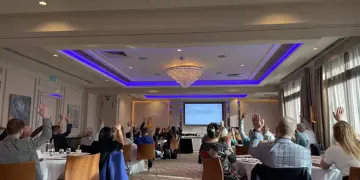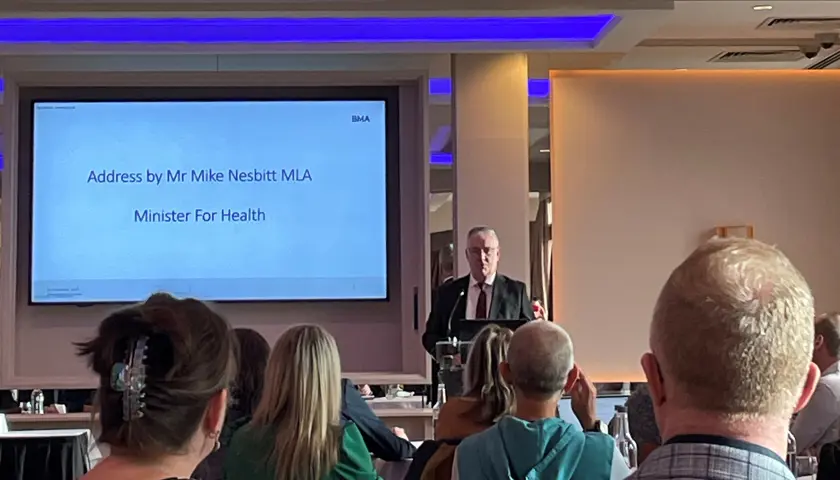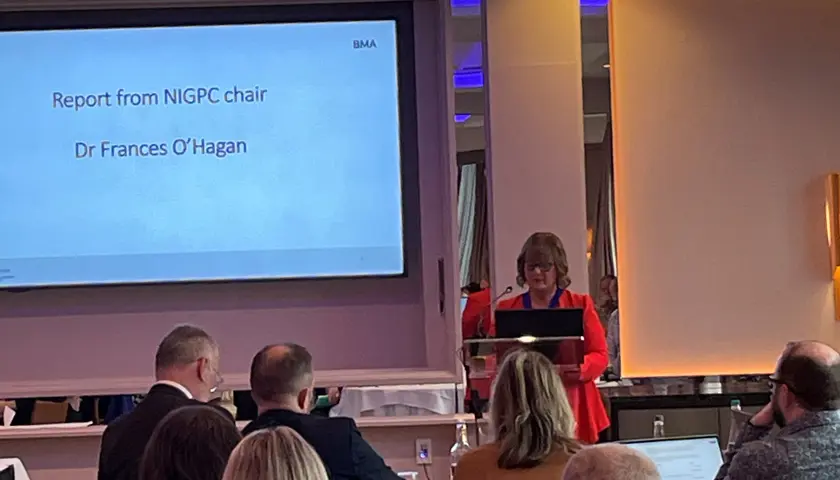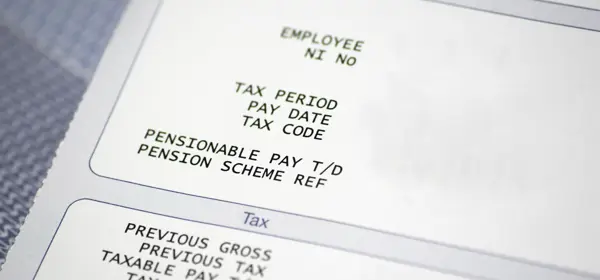GPs demand solutions on pay and indemnity
GPs demand solutions on pay and indemnity
Northern Ireland’s health minister faced tough questions at the conference of LMCs
When GPs in Northern Ireland gathered in Belfast at the weekend for the annual conference of local medical committees it was never going to be a wholly joyful day.
As well as the ongoing problems of workload, demand, resources, recruitment and retention, and practice closures, they had just learned that the health department ‘could not afford’ to pay doctors the recommended uplift for the current year in full.
Not surprising, then, that there was a lot of anger in the room.
Health minister Mike Nesbitt had been scheduled to talk at the event long before it emerged that he couldn’t meet the DDRB (Review Body on Doctors’ and Dentists’ Remuneration) pay recommendations. He had also been expected to take questions from GPs, although he himself admitted that officials had tried to pull back from that. In the event, he compromised by taking two.
His was a speech much as you’d expect. He spoke of how much he valued GPs, how he saw primary and community care as a priority (along with mental health, waiting lists, and his ‘passion’, health inequalities).
The minister said he was under no illusion about the strength of feeling about the challenges facing general practice. ‘Some of you today, I have no doubt, are probably feeling disillusioned, perhaps a little bit broken,’ he said.
He was clearly aware that GPs felt a loss of trust in the health department, particularly over the issue of indemnity payments (unlike England and Wales, GPs in Northern Ireland pay their own indemnity costs, which run into thousands of pounds annually; Scottish GPs also pay their own, but it costs much less). GPs had been under the impression that a solution would be found this year, but the outworkings of what was agreed have proved unsatisfactory. Nevertheless, Mr Nesbitt said he’d been assured that the department ‘sought at all times to act in good faith and with transparency in relation to all contractual matters’.
‘It’s equally clear to me that you have a different view,’ he added with grim understatement, recognising that GPs were concerned and even angry over the ‘breakdown in understanding on this very important issue’.
He said his department had put forward a package of £3 million to provide support for GPs, including additional non-recurring funding of £1 million as a one-off uplift in recognition of ‘the challenges you are experiencing in delivering services’.
He believes it’s a ‘good deal’ for GPs and ‘certainly the best we can manage’, and hoped they could reach agreement soon and have ‘positive engagement’ on the GMS contract for next year.
This would, he stressed, include engagement on a long-term solution to indemnity, and he has committed to having proposals on the table by the end of this calendar year.
‘Invidious position’
He also addressed the issue of pay head on, saying that the department was £100 million short of meeting the full recommendations of the pay review bodies, including the DDRB. ‘It’s an invidious position for me, as health minister,’ he said, although there didn’t seem to be a huge amount of sympathy for him in the room.
He’s proposing a two-part solution – they can afford to pay the uplift for eight months of the year, leaving a gap from April to July. The Northern Ireland Executive meets on Thursday, and he’ll be putting his case to them then to find a way to meet the shortfall.
The rest of his speech covered health service reform (he’s keen on it), health inequalities (his passion), multi-disciplinary teams (he wants to see them rolled out more widely) and the vexed issue of contract hand-backs – where GP partners can no longer run a viable practice. But while recognising the problems, he said that challenges also provide opportunity for innovation. He concluded, perhaps over-optimistically, that he wants to inject ‘a little more hope’.
The first of the two questions he agreed to take referred to national insurance – the hike of employer contributions in the recent UK budget is likely to hit GP practices, as employers, hard. Not surprisingly, he made no commitment to finding a solution on that.
The second question from the floor concerned salaried GPs: was a salaried model the direction of travel for general practice? There was less equivocation here. Mr Nesbitt said the partnership model was best.
The minister was followed at the podium by Frances O’Hagan, newly elected chair of the BMA Northern Ireland GPs committee. She acknowledged that she had taken over the post ‘at arguably the most difficult time for our profession’.
Responding to the minister on the DDRB issue in particular, she said she hoped he would bridge the gap so that the recommended uplift would be paid in full. ‘Does that show that we are valued as GPs? We’ll see whenever the outcome comes forward.’
Spending on general practice in Northern Ireland is only 5.4% of the health budget, she said, adding that this was ‘unbelievably low’ as GPs do in excess of 90% of the consultations. ‘Our work is actually increasing because of lengthy waiting times – our patients keep coming back to us while they’re waiting to be seen in secondary care.’
After covering the many issues which add up to a crisis in Northern Ireland general practice, Dr O’Hagan wanted to finish on a positive note. But she wasn’t able to. ‘It’s dire; it’s only likely to get worse,’ she said.
Certainly the mood in the debates across the rest of the day backed that view up. GP after GP stood up to describe their take on the issues. Emotions ran high; one GP described the brutal process of a failed practice merger leading to a contract hand-back. In the soapbox section (where individuals could raise an issue not otherwise covered in the agenda), another doctor made a plea for a practitioner health service for Northern Ireland – for the sake of patient safety, as much as for the health and wellbeing of doctors themselves.
Outside, Belfast was en fête. The Christmas market was opening at the cheerily decorated City Hall. People were milling around the revitalised city centre bars and restaurants (including The Ivy, newly opened in the stately building that was once the Robinson & Cleaver department store). In so many ways, Northern Ireland is on the up. But amidst a measure of optimism, its health service, including general practice, is in danger of being left behind.
Hear more from the debates on X: @JenTrueland and @BMANI-GP





